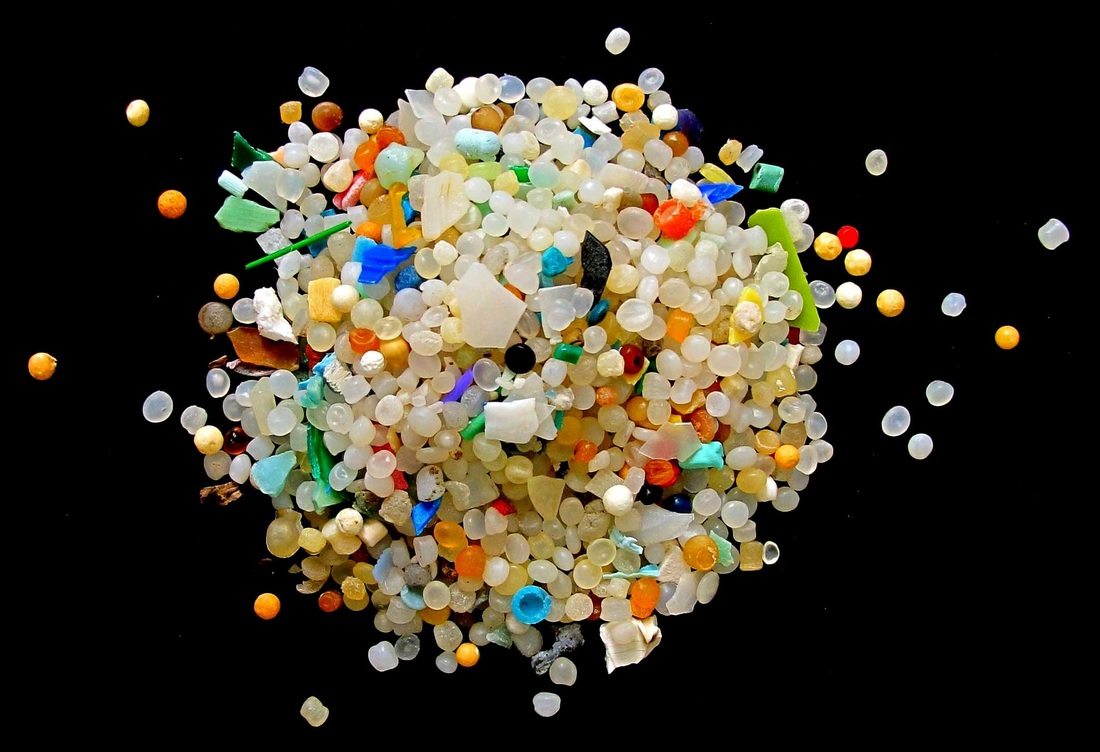Microplastics in Oceans Leave Whale & Shark Vulnerable To Toxins
Plastic never goes away. And it’s increasingly finding its way into our oceans and onto our beaches. Today billions of pounds of plastic can be found in swirling convergences making up about 40 percent of the world’s ocean surfaces.
Plastics pollution has a direct and deadly effect on wildlife. Thousands of seabirds and sea turtles, seals and other marine mammals are killed each year after ingesting plastic or getting entangled in it. Endangered wildlife like Hawaiian monk seals and Pacific loggerhead sea turtles are among nearly 300 species that eat and get caught in plastic litter.
Now, new entrants to the list are the ocean giants- whales and sharks. Another wake-up call around the massive problem of plastic pollution- a new study has revealed how microplastics represent a significant risk for large marine filter feeders like whales and sharks.
Microplastics can come from a variety of sources. These plastics can be the remnants of larger plastic pieces that degraded over time and broke apart in the water. But they can also come from everyday, household products that contain plastic microbeads, like exfoliating soaps and toothpaste.
Solutions to the growing problem of plastic pollution aren’t as simple as “don’t wash
your face with these soaps” or “recycle carefully.” Companies need to phase out products containing plastic microbeads, governments need to find ways to remove microplastics from the water.Species such as baleen whales and basking sharks, which feed through filtering seawater for plankton, are ingesting the tiny particles of indigestible plastic which now appear to permeate oceans throughout the world. Some of these species have evolved to swallow hundreds or even thousands of cubic metres of seawater a day, but taking in microplastic can block their ability to absorb nutrients, and may have toxic side-effects.
“Our studies on whale sharks in the Sea of Cortez and on fin whales in the Mediterranean Sea confirmed exposure to toxic chemicals, indicating that these filter feeders are taking up microplastics in their feeding grounds,” said Professor Maria Cristina Fossi of the University of Siena.
“Exposure to these plastic-associated toxins pose a major threat to the health of these animals since it can alter the hormones, which regulate the body’s growth and development, metabolism, and reproductive functions, among other things,” said Professor Fossi.
Elitza Germanov, a researcher at the Marine Megafauna Foundation and co-author the study, said: “Despite the growing research on microplastics in the marine environment, there are only a few studies that examine the effects on large filter feeders. We are still trying to understand the magnitude of the issue. It has become clear, though, that microplastic contamination has the potential to further reduce the population numbers of these species, many of which are long-lived and have few offspring throughout their lives.”
Many species of whale, filter-feeding shark and rays are already under threat from other problems, such as overfishing and pollution. The added stress from microplastics could push some species further towards extinction, the authors of the study warned.


































